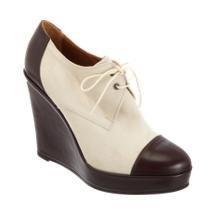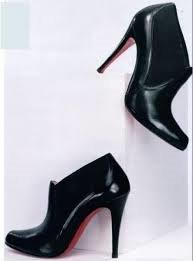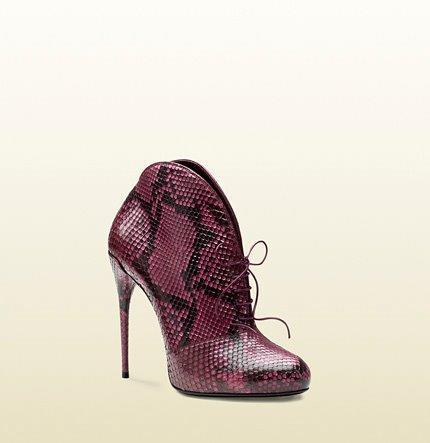Helene Lerner's Blog, page 99
October 15, 2014
I Am Woman, I Am Strong
 The lyrics from Helen Reddy's song, I Am Woman, are ringing in my head as I watch the news about Beverly Carter, a realtor in Little Rock who was kidnapped and killed. The man arrested for the crime stated he targeted Beverly because she was "a woman who worked alone."
The lyrics from Helen Reddy's song, I Am Woman, are ringing in my head as I watch the news about Beverly Carter, a realtor in Little Rock who was kidnapped and killed. The man arrested for the crime stated he targeted Beverly because she was "a woman who worked alone."
Violence against women doesn’t get discussed often and is far more common than we realize. According to the Justice Department, 1.9 million women are physically assaulted annually in the U.S. and approximately 15 – 25% of American women will report a sexual attack or rape at some point in their lives.
When I was in college, a man from one of my classes stopped by my dorm on a Friday night. I was neither interested in him nor attracted to him, so I just made small talk. His intentions were clear when he forcibly grabbed and kissed me. I struggled to get away-- I knew physically I couldn’t match or beat his strength, that my only weapon was my voice. Although petrified, I was able to reason with him. I am one of the lucky ones.
As a young adult, I traveled 80% of the time for my job. On four different occasions, I had men try to get into my hotel room. One man dressed in a hotel uniform and knocked on my door at 1:00 a.m. claiming he was delivering room service. I didn't answer and called the front desk. They told me room service had stopped two hours earlier.
Personal experiences and news stories make me observant. I don't open hotel doors or doors at home unless I know the person on the other side. But these safety precautions can’t help you if the danger resides in your own home.
When my daughter Shannon was 10 years old she had a sleepover at a friend's house. While she was away, domestic violence broke out between the husband and wife; Shannon and her friend hid in the closet. Shannon stayed at their home overnight, but in the morning violence began again and the police were called.
I never thought I would be talking with my 10 year old daughter about the potential for violence in relationships. I imagined I would have this discussion when she started dating. I told her if anyone ever hits her she needs to get out of the relationship and tell someone.
We need to change the dialogue about women to one of respect, inclusion, and appreciation. The fear or reality of rape is one of the fundamental realities for most women. Creating dialogue and open spaces to discuss personal experiences paves the way for new possibilities for our collective future.
--Sharon Orlopp, Global Chief Diversity Officer at Walmart
What To Do When You Screw Up Big
 Microsoft CEO Satya Nadella is taking a lot of heat for his recent career advice to 10,000 women at the Grace Hopper Celebration of Women in Computing Conference. He was asked how women who are uncomfortable asking for a raise should go about it. Here is Mr. Nadella’s reply:
Microsoft CEO Satya Nadella is taking a lot of heat for his recent career advice to 10,000 women at the Grace Hopper Celebration of Women in Computing Conference. He was asked how women who are uncomfortable asking for a raise should go about it. Here is Mr. Nadella’s reply:
“It’s not really about asking for a raise, but knowing and having faith that the system will give you the right raise as you go along. That might be one of the additional ‘super-powers’ that, quite frankly, women (who) don’t ask for a raise have. That’s good karma. It will come back.”
That, of course, is really bad advice—whether it’s given to women or men.
To his credit, Mr. Nardella owned up to his mistake and later stated on Microsoft’s press page, “I answered the question completely wrong.”
Here are three things we can learn from Mr. Nardella’s own career mistake:
Smart people make mistakes, apologize and move on:
You don’t get to be a CEO without being smart. And you don’t get to where you are without being smart. Remind yourself of that when you make a mistake. Tell yourself you’re smart but you’re not perfect, and there’s no need to beat yourself up over your mistake. Mr. Nardella said, “I answered the question completely wrong.” The lesson for us: Apologize, make amends and move on. It’s amazing how forgiving people can be when we own up to our mistakes. The bigger question is, can we forgive ourselves?
Smart people take feedback well:
Mr. Nardella got feedback—probably more than he wanted—because social media lit after his response. He didn’t fare so well in the public outcry over his misguided answer but he was very smart in how he handled it. The lesson for us: Ask for feedback. After all, even the smartest of us have our blind-spots. If we want to be smarter, here are two questions we can ask: What am I doing well with?” and “Where can I do better?” It's good to recover from a mistake when you make it—it's far better to get advice and feedback to make fewer mistakes.
Smart people ask for help:
We’re all smart about some things, but we’re not smart about everything. Mr. Nardella tried to answer a question he shouldn't have. The lesson for us: We need to know our limits and be able to say, “This isn’t my strong suit, I need some help here.” We can’t know everything or be the best at everything. However, there is usually someone within reach who can help us if we’re willing to ask.
--Alan Allard, Executive Coach
October 14, 2014
Alix Astir on Artistry and Business
[image error]On the surface, Manhattan-based floral designer Alix Astir is living a fairy tale. Her floral business, Trellis Fine Florals, is very successful, and Alix herself is crowned the “Rose Queen” of New York. Her apartment overlooks “The Secret Garden” of Central Park, dedicated to the author of Alix’s favorite childhood book. Here are the highlights of an interview we did with Alix recently.
It seems like you had an interesting life even before you began your business. What was your childhood like?
My childhood was extremely difficult: my father was a fine artist, and my mother a ballerina, and neither job paid well. It was the 70s, and we literally lived next door to a commune in the Bronx. It was very back to nature, granola, all of that. I learned at a young age to think independently, to look at things in a different light, and to not mindlessly follow the crowd. A difficult upbringing will either crush you like a steamroller, or teach you to bootstrap it, forge on and make your suffering your strength. I was determined to do the latter.
How do you manage to balance your work life and your personal life?
It’s really, really hard. Now that I’ve reached a certain level of success, I’m trying to take a step back and put my personal life first. I had to realize that my business wasn’t going to fall apart because I didn’t send an email or answer a call. On the weekends I need to be emotionally and mentally present for my family, and I actually work better now because I’m more refreshed when I show up Monday morning—that is, if I’m not working that weekend!
What advice do you have for other female entrepreneurs trying to grow a successful business?
I see women time and again trying to “do it all,” and it just doesn’t work! If you are going to be a floral designer, you really do need to be an expert in the actual design and execution, so let others handle everything else. I’m not a good accountant or a good manager—so I hire experts to do those jobs. No one expects you to flourish in every single facet of your business. That is part of being a good entrepreneur as well, know your strengths and your weaknesses.
How have your experiences made your design aesthetic especially unique and different?
Going back to my roots, my father and mother always had natural elements in our household. My dad and I would go beachcombing for driftwood after every storm, and my mother would collect shells or we’d go hiking in the woods to find strangely shaped mushrooms and things. Clients here in Manhattan love tight, compact arrangements, so I balance that aesthetic with a flourish of a natural element, like a twisted branch or strange berry—something that looks straight from the forest. We’re very urban here in the city, people get so disconnected from nature they realize they’re actually starving for the peace it can give you. Very often I’m called into offices to bring some of the outside in.
Some examples of Alix's terrific work:



Interview conducted by Amanda Miller (WomenWorking.com Intern)
October 13, 2014
How to Stop Comparing Yourself To Others
 Do you ever compare yourself to others and end up not feeling so good? If so, you’re not alone. In fact, untold numbers of people will read something from a friend on social media today wish their family vacation was so spectacular or that their career was so stellar. When we watch celebrities walk the red carpet, it’s easy to forget that no one has a perfect life—even if their designer clothes, make-up and hair-style make it seem so.
Do you ever compare yourself to others and end up not feeling so good? If so, you’re not alone. In fact, untold numbers of people will read something from a friend on social media today wish their family vacation was so spectacular or that their career was so stellar. When we watch celebrities walk the red carpet, it’s easy to forget that no one has a perfect life—even if their designer clothes, make-up and hair-style make it seem so.
There's no shortage of opportunities to compare ourselves to others when it comes to beauty, income, talent, title or just about anything. Somehow, somewhere along the way, we’ve learned to look at others, compare ourselves to them and to suffer in the process. Playing the Comparison Game isn’t much fun and we can stop with a little help:
Decide What’s Important to You:
I had a friend who recently bought a new car and was thrilled—until they saw a co-worker with a higher end model of the same car. I asked my friend, “On a scale of 1-10, how important is it to you to have the higher end model car instead of the one you bought?” They thought a moment and quickly said, “You know, all things considered, it’s not that important.” Our culture and the media might tell us we need to look like a model or have the power of a CEO to feel important, fulfilled and happy—but we can make up our own minds about that. The key is to decide what’s important to you and keep the rest in perspective.
Monitor Your Progress, Not Others:
It’s okay, even good, to compare yourself to someone else—if that comparison inspires you to be your best self. For instance, if someone in your company gets promoted and that inspires you to evaluate your own career goals, all is well. If you know someone who is generous and kind and that reminds you that you are as well, that’s a plus. Monitor you own progress at work and in life and if you decide you want to do better, you can. The truth is, if we're focused on ourselves and making progress, we're going to be too busy and happy to compare ourselves to others.
Don’t Compare, Be Aware:
Remind yourself that happiness is a choice and comparing yourself to others destructively will only rain on your parade. When you see something in others you feel you don’t have, be aware of what’s really important to you. If it is, inspire yourself to become the person who has the qualities you admired, and practice everyday being more aware and happy about you do have. You might find that focusing on what you do have (instead of what you don’t have) leads to more and more of it coming your way.
October 10, 2014
Be The Best You
Take a look at our new video, and share it with your friends.
Remember to always be the best YOU.
Video editor: Melenie McGregor
October 9, 2014
Are You Too Selfish?
 A client called a few weeks ago for her coaching session. Right away, I could sense something was wrong—not from what she said, but in her tone of voice. She was angry, confused and sad. Why? Because one of her close friends just told her, “You’re being selfish.” My client is a caring person, and although she knows that, the accusation hit hard.
A client called a few weeks ago for her coaching session. Right away, I could sense something was wrong—not from what she said, but in her tone of voice. She was angry, confused and sad. Why? Because one of her close friends just told her, “You’re being selfish.” My client is a caring person, and although she knows that, the accusation hit hard.
She needed to figure out what was going on and what she was going to do about it. Have you ever been in a situation like that? I bet you have. Maybe a friend, co-worker or family member has told you at some point, in some way, “You’re being selfish.”
Most people aren’t as bold as my client’s friend. They aren’t going to tell you you’re being “selfish”, even if they’re thinking that. No, they’re going to hint at it by saying things like:
“You can’t do that! What would the rest of the family think?”
“The kids need you to ________.”
“I know you’re not getting paid overtime for this, but I know I can always count on you.”
“If you don’t do what your boss says, you might lose your job. Then what are we going to do? You have to think about your family.”
The list of things people can say to make you feel bad and get you to cave in are endless.
The question is, can you assert yourself, communicate what you need and judge each situation on its own merits? Or do you find yourself feeling guilty and giving in? Do you feel selfish? Have you ever noticed that when someone hints that you’re being “selfish” it’s always when you’re not giving in to what they want?
Let’s say you’re working for your family’s business. You feel you’re being taken advantage of but you're told you’re the only one who can do what you do. If you don’t? The family business will go under. How do determine if you can do what “needs” to be done without sacrificing yourself at the altar?
The way you know who's actually being selfish (thinking only of their own welfare and not being concerned with your well-being) is by asking them, “If I do this, what are you willing to do for me?” You may not feel comfortable saying that exactly, but it doesn’t make you selfish, it makes you human.
So, what do you do if you have this nagging feeling that you're being selfish in some way? Share your situation with a trusted friend or advisor who isn’t connected and ask them what they think. Are you being selfish or is the other party?
It’s time we recognize that our needs and wants are just as important as anyone else’s. But what about the needs of your life partner, your boyfriend, your boss, your co-worker or your friends? Yes, their needs are important. But if you make their needs more important than your own, they’re going to be happy.
You? Not so much.
--Alan Allard, Executive Coach
October 8, 2014
Honor your Small Successes
 Have you ever decided you were going to change something in your life and then realized the change wasn't happening? Or maybe it never started at all, despite your good intentions. I’m talking about the big changes you wanted, not the small easy ones. Smaller changes are usually no big deal, but what about the scary ones-- changing careers, transforming a disappointing relationship or writing the book you’ve talked about?
Have you ever decided you were going to change something in your life and then realized the change wasn't happening? Or maybe it never started at all, despite your good intentions. I’m talking about the big changes you wanted, not the small easy ones. Smaller changes are usually no big deal, but what about the scary ones-- changing careers, transforming a disappointing relationship or writing the book you’ve talked about?
What explains our procrastination or derailment of big goals that could dramatically change our lives?
One answer is fear. We hear that a lot—and I agree. Fear is often a reason we fail to take action, but could there be something else? I think so. We’ve been conditioned to give more weight to the glory of the big finish than we do to every step of the way that leads to there.
That’s what often stops us. We set goals thinking about the grand finale and the prize that is waiting at the end. We make the announcement, “I’m going after my dream job,” and we mean it—at the time. We see the end results in our mind and feel so good we can hardly contain ourselves.
However, we don’t consider that the big goal we’re excited about has many small steps involved and we don’t know how to keep ourselves motivated. It’s easy to think about hitting our goal of losing thirty pounds or finding our dream job. It’s not so easy to do the work and stay the course until we get there. Not many of us learned how to enjoy the journey as much as the final destination.
Instead we’ve learned to dismiss our small steps because there’s nothing sexy about small improvements and we’re out of adrenalin. We haven’t learned to embrace and celebrate the small but necessary progress we make towards our goals; the “one step at a time” part of success and fulfillment.
What we need is a new way of thinking about the process of achievement, progress and success. We need a new model that gives due respect to the small steps we take—the ones others don’t notice and aren’t dazzled by.
Perhaps we can call this new model of honoring and enjoying each step The 1% Principle. This principle is suggested by Lao-tzu, a Chinese philosopher, in his statement, “A journey of a thousand miles begins with a single step.” In that single sentence, he gives due respect and admiration for both the first and the last step of the journey.
The 1% Principle encourages us to enjoy and celebrate each step along the way, instead of waiting until we reach our destination to feel strong, powerful and accomplished. In everyday application, this principle allows us to celebrate losing a half pound while on our way to our ultimate goal. We don’t have to wait until we lose all the weight, now we can feel successful, happy and fulfilled every step of the way.
It’s about how we view the process and honor the route instead of giving all the glory to the final achievement. If we honor the process as well as the end result, we will discover that it’s a series of one percent successes that added together make up the final 100.
--Alan Allard, Executive Coach
October 7, 2014
Solved: Fabulous Fall Footwear
 How you dress is a visual interpretation of how you feel about yourself, and shoes are unquestionably one of the most important parts of your ideal look. With the changing of seasons upon us, I thought it would be helpful to breakdown a few points about current hot shoe trends to better help you choose before you buy.
How you dress is a visual interpretation of how you feel about yourself, and shoes are unquestionably one of the most important parts of your ideal look. With the changing of seasons upon us, I thought it would be helpful to breakdown a few points about current hot shoe trends to better help you choose before you buy.
Chunky Heels: These were popular in the 80’s and have reemerged. They’re a nice relief from high pumps and can be just as eye-catching and leg extending. More importantly they’re uber-comfortable. There’s a myriad of chic varieties you can pick from with diverse patterns and shades. Don’t shy away from reptile prints or wearing with tall socks when paired with skirts or culottes/long shorts.

Flats: We appreciate their comfort and practicality. They’ve become so popular that designers are coming up with new and stylish flats to add to their collections every season. Additionally, flats have gotten a face lift with jewels and beading that make them fancier and more appealing, even to “stiletto skeptics."

Ankle Straps/Buckles: Menswear inspired clothing has extended to the feet! Monk straps, brogues, traditional lace-ups once were typical male attire but that’s history; today brogues are one of the most popular women flats! They look sleek and smart with everything from suiting to jeans and a blazer. Variety is key, so choose a color or pattern that best matches your personality.

Platforms & Wedges: All I have to say about these styles are… comfortable and height gratifying!



Booties: Booties are extremely versatile and practical for every day. You can wear different varieties in different seasons-- even summer! There are plenty for the warm weather, like cutout designs or peep toes. Booties are a great option if you have small or large calves and cannot wear knee high boots, but still want that city chic effect.


Ankle Boots: Can be worn not only with smart-casual outfits but also with elegant ones. It’s important to choose your ankle boots with care, so respect the following:
During winter try on booties with your thickest sock; that small change can make a world of difference in fit and wear. Choose the right size.
Your boots must reflect your personal style; don’t buy biker embellished boots if they don’t suit you.
Invest in well-made footwear; it will be worth staying bunion free and they’ll last for years to come.

Knee & Thigh High Boots: Knee high boots are commonly worn at work or play; it’s the over the knee boots that can be a challenge to wear appropriately at work. Normally I would recommend sticking with knee high boots at the office, but today there are low to mid-heel over the knee boots that can easily pass for appropriate office wear. Try pairing a ladylike dress with your boots for a little flair or an otherwise traditional ensemble. It will make a splash without making waves.

If you haven’t figured it out yet, the most important key is comfort. I know it can be hard when you find a beautiful pair that sings in the mirror, but remember the pinch at your toe will eventually grow to a shout once you’ve worn them for more than 10 minutes. Don’t let them find themselves sitting in your closet! We've all done it and I want to help you put a stop to it today. Pretty feet are way sexier than a pretty shoe, so save your toes and take the extra time to find the right cut for you. Once you find a designer that’s comfortable for you, you’re GOLDEN!
If you would like to read more on this topic and other style advice, check out my style blog www.fashfamfoo.com. I look forward to answering any of your style questions or concerns!
Pamela Watson is an experienced stylist who currently works as the trend expert for Builders of Style, where she prepares A-list clients for red carpet events, music videos, concerts, and award shows.
October 6, 2014
Coach Yourself to Bigger Progress
 When I facilitate my “Leader as Coach” workshop for companies, I ask each manager to write down the name of the person on their team that would benefit the most from their coaching. How often do you think a manager writes down his or her own name? Not often! Fortunately, in the discussion after the exercise, they begin to see why their most important "coachee" should be themselves.
When I facilitate my “Leader as Coach” workshop for companies, I ask each manager to write down the name of the person on their team that would benefit the most from their coaching. How often do you think a manager writes down his or her own name? Not often! Fortunately, in the discussion after the exercise, they begin to see why their most important "coachee" should be themselves.
You might be wondering what this has to do with you if you aren't a leader in your organization. It has everything to do with you, because you are a leader whether you have a title or not. You lead yourself and impact and influence those around you. If you want to be a better leader for yourself, learn how great coaches enable others to go beyond what they think they're capable of and then apply what you learn to yourself.
One of the greatest tools coaches use are questions. Here are three questions you can use to coach yourself every day:
What are my top three goals/priorities?
Now is the time to plan how you will finish this year on a strong note and set yourself up for success in 2015. What 1-3 things do you need to focus on to do break through the tape at the finish line? Great coaches ask provocative questions, so don't just ask yourself what your goals are. Ask yourself if the ones you've chosen are worth giving your life to. Do they inspire you, challenge you and bring out the best you have to offer yourself and others?
Am I celebrating my progress?
One of the things my clients and workshop participants tell me is, “It would be helpful if I had more positive feedback on regular basis.” Of course they’re right, and I say “That’s a good observation, so make sure you get it—from yourself.” If you want to unleash your inner greatness, you have to respect and appreciate your progress along the way. If you want to get more from yourself, you have to give more to yourself.
How can I challenge and stretch myself?
A great coach isn’t afraid of challenging his or her client. Coaching yourself means you call yourself out when you need calling out—but that doesn’t mean criticizing yourself. It means telling yourself the truth you might not want to hear. Here’s an example: “Sherry, you say this is important to you, but you’re just going through the motions. What’s going on? I know you’re capable of more, so let’s figure this out together.” Coaching yourself requires not only empathy and encouragement; it also requires challenging yourself on a regular basis.
--Alan Allard, Executive Coach
October 4, 2014
Three Simple Truths About Happiness

You likely know about the growing discussion over the past several years concerning happiness. We're even talking about happiness in the workplace, but while we’re talking about it, there’s still a lot of confusion on the subject. If you read one book, it will tell you pursuing happiness only makes it more elusive. Another will tell you happiness should be your top priority. How can we make sense of it all without going crazy?
The way I make sense of things is to keep them as simple as possible, but not simplistic. When it comes to happiness here’s what I’ve learned as a former psychotherapist turned executive coach and life coach: being happier isn’t as difficult as we sometimes think it is. With that in mind, here are my three tips to a happier and more fulfilling life:
Happiness begins with a decision:
If you want to be happier, you have to decide you will create more happiness for yourself. Yes, you have to actually make a conscious decision, “I am going to learn to be happier, starting today.” You have to be conscious about your happiness because you are in charge of your happiness levels. To get somewhere in life, especially to get to your happiness, you have to decide to go there. Think about your last vacation—you didn’t get there by accident—you decided to go there. That’s the way happiness works too. You need to decide to go there and then follow through on that decision.
Happiness comes in small packages:
If you want to sabotage your happiness journey just tell yourself, “I’ll be happy when I lose my last ten pounds” or “what would make me happy is to find true love.” Those are fine goals, but your happiness doesn’t just depend on achieving big goals. You can experience more happiness now by allowing small, every-day things to bring a smile to your face. Make a list of ten things that are quick and easy that can boost your happiness. You know, like your favorite cup of coffee or tea, thinking of the family you go home to, taking a fifteen minute walk during lunch, receiving that email from a friend. Make your list and then use it to remind yourself of your decision to be happier.
Happiness begets happiness:
You’ve heard the phrase “success begets success,” haven’t you? It’s the same with happiness. Even a small amount of happiness makes it easier to create more of it. The (mental) trick is to recognize even the smallest moments of happiness—because what we give our attention to grows. You know that’s true with complaints, fears and worries, right? Why wouldn’t that be true of happiness? Pay attention when you feel even slightly happy and confirm your happiness by telling yourself “I feel a little happier.”
What are your suggestions for keeping happiness simple? Leave a comment and I’ll be happy to reply, no pun intended.
Helene Lerner's Blog
- Helene Lerner's profile
- 9 followers



